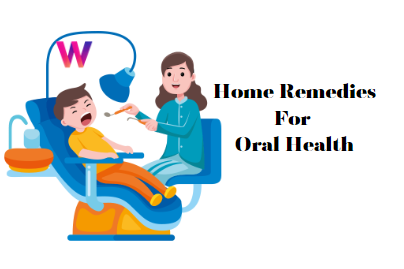Your oral health is essential to your overall well-being. Neglecting it can lead to tooth decay, bad breath, and even gum disease. Regular brushing and flossing are essential, but there are also natural home remedies you can use to keep your teeth and gums healthy. We will explore 7 home remedies for oral health and get a sparkling smile naturally.
Home Remedies for Oral Health:
#1 Oil Pulling
Oil pulling is an ancient Ayurvedic practice that involves swishing oil in your mouth to remove toxins and bacteria. It is a simple and effective way to improve your oral health. Here’s how to do it:
- Take one tablespoon of coconut oil or sesame oil and swish it around in your mouth for 15-20 minutes.
- Spit out the oil and rinse your mouth with warm water.
- Brush your teeth as usual.
Oil pulling can reduce plaque, prevent bad breath, and even whiten teeth. It is recommended to do it in the morning before eating or drinking anything.
#2 Baking Soda
Baking soda is a natural tooth whitener and can help remove stains from your teeth. It also has antibacterial properties that can help reduce plaque and prevent tooth decay. Here’s how to use it:
- Mix one teaspoon of baking soda with a few drops of water to form a paste.
- Dip your toothbrush into the paste and brush your teeth for two minutes.
- Rinse your mouth with water.
It is recommended to use baking soda only once or twice a week as it can be abrasive and damage your enamel.
#3 Apple Cider Vinegar
Apple cider vinegar has antibacterial properties that can help kill bacteria in your mouth and reduce bad breath. It also contains acetic acid, which can help whiten teeth. Here’s how to use it:
- Dilute one teaspoon of apple cider vinegar with one cup of water.
- Swish the solution in your mouth for 30 seconds.
- Spit out the solution and rinse your mouth with water.
It is recommended to use apple cider vinegar only once a day as it is acidic and can erode your enamel if used excessively.
#4 Tea Tree Oil
Tea tree oil is a natural antiseptic that can help reduce gum inflammation and prevent gum disease. Here’s how to use it:
- Add one drop of tea tree oil to a small amount of water and mix well.
- Swish the solution in your mouth for 30 seconds.
- Spit out the solution and rinse your mouth with water.
It is recommended to use tea tree oil only once a day as it can be toxic if ingested.
#5 Hydrogen Peroxide
Hydrogen peroxide is a natural bleaching agent that can help whiten teeth and kill bacteria in your mouth. Here’s how to use it:
- Mix one part hydrogen peroxide with one part water.
- Swish the solution in your mouth for 30 seconds.
- Spit out the solution and rinse your mouth with water.
It is recommended to use hydrogen peroxide only once a day as it can be harsh on your gums if used excessively.
#6 Aloe Vera
Aloe vera has antibacterial and anti-inflammatory properties that can help reduce plaque and prevent gum disease. Here’s how to use it:
- Apply a small amount of aloe vera gel to your toothbrush and brush your teeth for two minutes.
- Spit out the gel and rinse your mouth with water.
It is recommended to use pure aloe vera gel and not products that contain added sugars or flavors. You can extract the gel from an aloe vera leaf or buy it from a health food store. Aloe vera gel can also help soothe mouth sores and heal gum tissue.
#7 Tongue Scraping
Tongue scraping is a simple and effective way to remove bacteria and debris from your tongue. It can help prevent bad breath and improve your overall oral health. Here’s how to do it:
- Use a tongue scraper or the edge of a spoon to gently scrape your tongue from back to front.
- Rinse your mouth with water.
Tongue scraping should be done once a day, preferably in the morning before brushing your teeth. You can also use a toothbrush to clean your tongue, but a scraper is more effective.
Frequently Asked Questions:
Q: Can these home remedies replace regular dental check-ups?
A: No, these home remedies are meant to supplement regular dental check-ups and should not be used as a replacement. It is still important to see a dentist every six months for a professional cleaning and check-up.
Q: Are there any side effects of using these home remedies?
A: While these home remedies are generally safe, some people may experience sensitivity or irritation. If you experience any discomfort, stop using the remedy and consult your dentist.
Q: Can these home remedies be used by children?
A: It is always best to consult a pediatric dentist before using any home remedies on children. Some remedies may not be suitable for young children.
Conclusion:
Maintaining good oral health is essential for a healthy smile and overall well-being. While regular brushing and flossing are important, these 7 home remedies can help improve your oral health naturally. From oil pulling to tongue scraping, incorporating these remedies into your daily routine can lead to a brighter, healthier smile. Remember to always consult your dentist before trying any new home remedies and to continue with regular dental check-ups.

